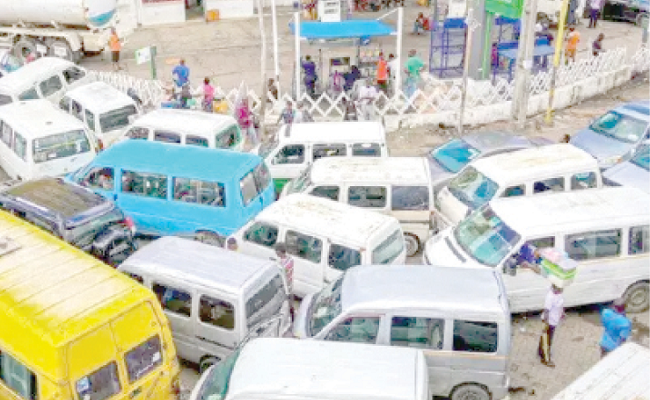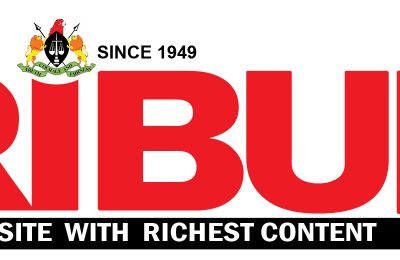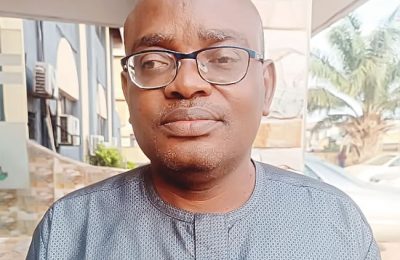It’s tales of lamentation on the lips of Nigerians, with many condemning the government as insensitive over the latest hike in the price of petrol.
Nigerians particularly lament that their woes and hardship have been compounded with transportation fares, cost of goods already increasing due to the petrol price hike.
Some particularly note that they have to adopt more belt-tightening measures to include private car owners leaving their cars at home and taking commercial transportation, others trekking distances, while some resort to begging commercial operators to convey them at the old rates.

Motorists and commuters in Jos decried the hike in pump price of Premium Motor Spirit (PMS) to between N970 and N1,100, with a motorist, Ruth Hoke, describing the recent increase as the “highest level of insensitivity by the NNPCL and the Federal Government.”
Hoke said that Nigerians were undergoing excruciating pains as a result of the current high cost of products and services, yet they were now being punished the more with another increase in price of petrol.
”While salaries and wages remain stagnant, the government keeps increasing the pump price at the detriment of the poor masses,” she said.
A tricycle rider, Michael Joseph, told the News Agency of Nigeria (NAN) that the government needed to consider the effect of its policies on the masses.

Joseph said that many people now preferred to trek instead of boarding commercial cars or tricycles.
According to him, the people who have no choice but to use their services, are now being forced to beg for discount on the fares.
“We need government to care for the masses because Nigerian masses are suffering. We are buying N1000 and above, how much are we going to carry a passenger? This is the job we created for ourselves, yet the government is bringing policies that will put us out of business,” Joseph said.
Another tricyclist, Felix Longji, said though the pump price had increased, he was yet to increase his charges.
According to him, many are sick and many others have even died because of hardship and so some of them are being considerate even in business.
The tricycle rider appealed to the government to reduce the price of fuel to mitigate the sufferings of Nigerians.
Mrs Damaris Botson, a commuter, appealed to the Federal Government to ensure that the country’s refineries were functional in the interest of the masses.
Botson said that Nigeria had been blessed with abundant natural resources that if properly harnessed, could address the country’s challenges.
Also, motorists and commuters in Kano metropolitan, on Wednesday lamented the hike in the pump price of petrol.
The motorists and commuters said that the review was uncalled for considering the economic hardship and persistent fuel scarcity in the country.
They said that the Federal Government should think of ways to alleviate the hardship and not put more burden on Nigerians.
Alhaji Mohammad Ibrahim, a resident of Gwale, said that he could no longer afford to buy petrol for his car and generator.
“I am parking my car until further notice and adjusting my lifestyle to cope with the economic hardship.
“I have a large family of 14 members and I have to provide for them because they rely on me for their daily needs,’’ he said.
Mr Moses Joseph, a resident of France Road, expressed concern about the sudden increase in pump price of petrol, adding that the increase is hurting the citizens.
Joseph said that the prices of commodities have skyrocketed, with some items increasing by 200 per cent.
He cited the example of a bag of sachet water which has risen from N200 to N450, depending on the supplier.
Joseph lamented the lack of price control, stating that traders have the freedom to set their own prices for products based on what they pay to producers.
“The price hike has a ripple effect on transportation costs, with commercial tricycle operators increasing their fares by 200 per cent depending on the distance,” he said.
In Abuja, some commuters were stranded, with some stating that the price increase had worsened the sufferings they were passing through for months.
Miss Amina Yusuf, a clerk in a private firm, said: “Yesterday, I paid N1, 000 from my house in Gudu to Garki where I work, only to leave my office and realise the fare had increased by 50 per cent.
“I stood for hours at the Phototech junction waiting for vehicle to go back, because the fare had been increased to N1,500.
“I had to beg other commuters who helped me out. One gave me N300 while the other added N200, before I could leave the bus stop.
“It was a harrowing experience, because I hate begging, but I had no choice,’’ she said.
Yusuf said she had to source fund from an online loan platform before coming to the office in the morning, because her employer would not take excuse for absence or else, she would get sacked.
“My salary is just N60,000 in a month. With this development, it is even not enough for transportation,’’ she lamented.
Another commuter, Mr Kingsley Okoye, said that the fare hike had burdened his finances.
Okoye said: “From Apo to Gudu, we were paying N250 fare, but I was charged N400, this morning.
“I had to look for where to make a withdrawal and get more cash so I would not get stranded at work.
“This situation is unbearable. The government is not looking at the suffering of Nigerians; they are only concerned with policies and regulations, which do not favour us,’’ she said.
Mrs Jennifer Fabian said she used to spend N200 from Nyanya to the city centre until the fuel subsidy removal when the fare was increased to N600.
She said that with the new increase in fuel price, the transport cost increased to N1, 200, which was very high compared to her income.
“This increase will definitely trickle down to affect virtually everything in the economy, especially the cost of food, which is already high. President Bola Tinubu should review the policies because Nigerians are suffering.
Commercial drivers interviewed by NAN, said they had no choice than to increase fare to cover their cost.
A driver, Mr Paulinus Eze, said: “We cannot run at a loss. As we speak, most filling stations are not even selling fuel yet, and the ones that are selling have adjusted their prices.
“NIPCO, where I usually buy fuel, has increased its price from N640 to N945, and I heard AYA Shafa is selling at N880 instead of N700.
“It is not our fault. We have to increase the price so that we can remain in business. We also have family members to take care of,’’ Eze said.
Joseph Adamu, Paul Olarenwaju and Edeh Thomas, all commercial drivers corroborated Eze’s position in justifying the increased fare.
Mr Solomon Akanbi, a civil servant, expressed his shock at the increase, saying he used to pay N1,000 from SDP junction to secretariat but was now being charged between N1,400 and N1,500.
“I came out this morning expecting an increase of N200 from my bus stop to secretariat but was shocked when I was told that fares were N1,500, this means N500 additional. I do not know how one will survive this constant increase in all goods and services in this country. You find out that things keep increasing including taxes but the salary to meet these needs remain the same. How will I pay this amount in one month, what will be left of my salary after the payment and my office does not have staff bus,” he said.
He called on the Nigeria Labour Congress (NLC) to intervene and assist Nigerian workers.
Miss Peace Achibong, a University of Abuja student, said the new increase in transport fares from Gwagwalada to the university gate was too exorbitant for students.
She considered seeking accommodation close to the campus to reduce costs.
Mr Chibuzor Agbakwuru, a trader, said the new fares made it difficult for him to commute from Gwagwalada to his shop in Area 10.
He expressed frustration with the country’s economy and called on the government to address the issues.
Mr Suleiman Yakubu, a driver, said he could not afford to buy fuel from black marketers and had decided not to work.
“We are not finding it easy likewise commuters, prices of all route have increased before from Gwagwalada to Nyanya goes for N1,500 but as at this morning is now N2, 000.
“Also, from Gwagwalada to Lugbe is now N1, 000 as against N700, Gwagwalada to Area 1 is now N1,500 as against N1,000, Gwagwalada to Kaduna Road is now N1, 200 as against N800.
“As fuel price keeps increasing, we will have no choice but to increase our prices. This morning many passengers have to go back home because of the increase in prices,” he said.
He pleaded with the government to find a solution to the fuel shortage and price increases.
Also, residents of Ogun lamented the increase in price of Premium Motor Spirit (PMS), popularly known as petrol, saying it will further compound the economic hardship in the country.
During NAN’s visit to a motor park around Brewery area in the metropolis, it was observed there were now increases in transport fares within the city and out of the city.
Transport fare from Abeokuta to Iyana Ipaja in Lagos, which was formerly N2,000, is now N2,500 while Abeokuta to Sango moved from N1,500 to N2,000.
NAN also confirmed that commercial motorcyclists have also increased their fares from one area to the other within the state capital.
Mr Kunle Olayeni, a civil servant, expressed worries over the current hike in PMS, saying it should not have come at a time when inflation has reached an all-time high.
“No one expected that fuel price would be upwardly reviewed again by the government. The economy is harsh already and Nigerians are not happy generally.
“Invariably, independent marketers would have to sell above N1,000 and the price may even reach N1,500 per litre in some parts of the country,” he said.
Olayeni appealed to government to listen to the cries of the masses, the less privileged in the society and the majority of citizens who bear the brunt of this economic policy.
“The government should reverse the hike in fuel price and ensure that necessary measures are put in place to make fuel generally available to the people.
“President Bola Tinubu should look into the fuel matter and let Nigerians heave a sigh of relief,” he added.
Mrs Fauziyah Adebiyi, a trader at Kuto market, noted that the current situation of fuel remained worrisome.
“Increase in the price of fuel means increase in the price of everything again. Things have not been the same since the removal of subsidy from fuel, and to still worsen the situation, pump price has been increased without prior notification,” she said.
Adebiyi stated that the situation had been worsened by the fact that prices of bags of rice still remained between N70,000 and N72,000.
“In addition to that, a big tuber of yam remains N5,000 and a small basket of tomatoes still remains the same.”
Adebiyi urged the Federal Government to urgently address the yearnings of the citizens, saying the increment would affect food prices in the market.
Read Also: US Police kill suspected gunman targeting Israel consulate







